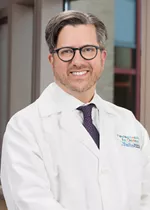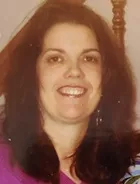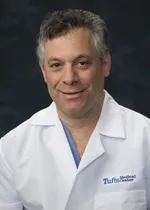
When doctors were not able to determine the origin of her strokes, Ducharme was referred to Neurologist-in-Chief David Thaler, MD, PhD, at Tufts Medical Center. She was found to have a PFO, but its relevance to her case was uncertain.
The PFO (short for patent foramen ovale, or "open hole shaped like an oval") is a small hole in the heart wall that separates the right and left atria. Every person has one as a fetus, but usually it closes on its own shortly after birth. However, in about 25 percent of the population, the PFO never closes. This allows for the possibility of a blood clot traveling through the hole (rather than getting filtered out by the lungs) and then up to the brain, causing a stroke. While most people with PFOs have no symptoms and live their whole lives without ever knowing they have one, there is an increased risk for PFO-related strokes. PFO closure through an outpatient procedure in the cardiac catheterization laboratory has been shown in clinical trials to be more effective than medical therapy for reducing stroke recurrence when compared to blood thinning medicines alone.

Maureen participated in one of those clinical trials that was partially led by Dr. Thaler. Patients were randomized to receive either PFO closure or blood thinning medicines alone. She was randomly assigned to the medicine-only arm and followed for several years. The results of the trial, which depended entirely on patients like Maureen being kind enough to participate, were clear. PFO closure was more effective at preventing recurrent stroke and so the FDA approved the PFO closure device for routine clinical use. At the trial's conclusion in 2017, Maureen was offered PFO closure, but at the time, she was preoccupied with tragedy in her personal life. Her sister's illness and untimely death left Maureen as the legal guardian of her nephew and niece, who has special needs. And then, to compound her stress, the pandemic hit. Finally, in May 2022, Maureen decided that she had tempted fate for long enough.
"I was well aware that blood clots are one of the potential risks of COVID, and closing my PFO would help prevent future stroke," said Maureen. "I have two kids who need me and I wanted to be sure I was going to be there for them. It was time to finally get it done."

Maureen reached back out to Dr. Thaler, who connected her with the Director of the Interventional Cardiology Center, Carey Kimmelstiel, MD. She was just in time to help with clinical research once again by participating in a new clinical trial. This time, the PFO team at Tufts Medical Center was testing a new device for PFO closure called Occlutech. While already widely used in Europe, Asia and Australia, it had not yet been implanted in the U.S.
"At Tufts Medical Center, we are proud to run the busiest PFO program in Boston," said Dr. Kimmelstiel. "Occlutech is smaller, more deliverable and easier to see compared to some other devices used for PFO closure. We thought it would be a perfect fit for Maureen."
Maureen didn't have to wait long. On June 3, 2022, just one week after enrolling in the study, she became the first person in North America to have PFO closure using Occlutech. A team led by Dr. Kimmelstiel implanted the device, the procedure went smoothly and Maureen returned home the same day – with a big weight lifted off her shoulders.
"Now I don't have to worry about stroke anymore," she said. "It's a big relief for me.
"Ultimately, having another device in our toolbox will likely help to reduce costs and provide patients with another option that might be a better fit for them," said Dr. Kimmelstiel. "We are very happy to have been able to help Maureen and are grateful to her for being the milestone patient in this journey."
"Dr. Thaler, Dr. Kimmelstiel and the entire team at Tufts Medical Center are remarkable, caring and knowledgeable in their fields," said Maureen. "They always made me feel comfortable and confident in the decisions I was making and took the time to explain things to me and answer any questions I had. The best medicine is taking that time with a patient. And I'm so appreciative of that."